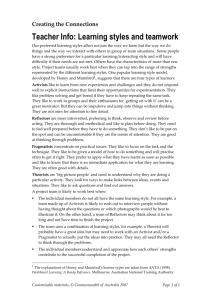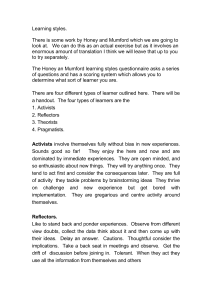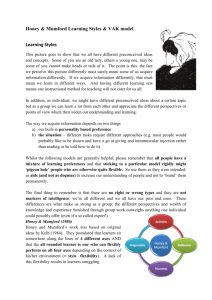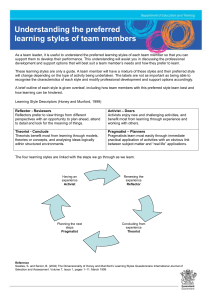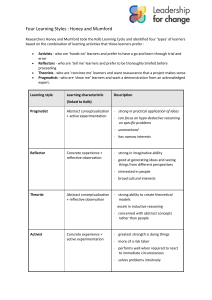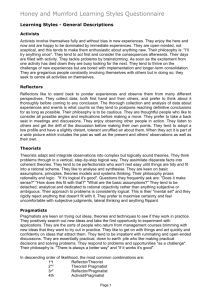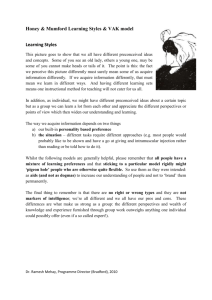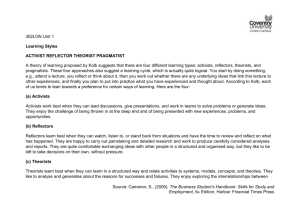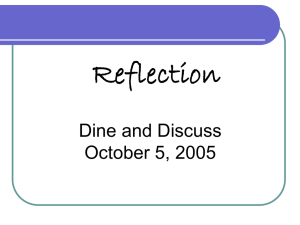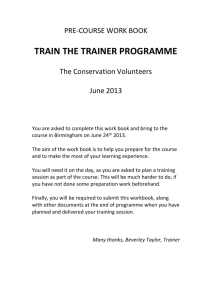Honey & Mumford Learning Styles: Activist, Reflector, Theorist, Pragmatist
advertisement
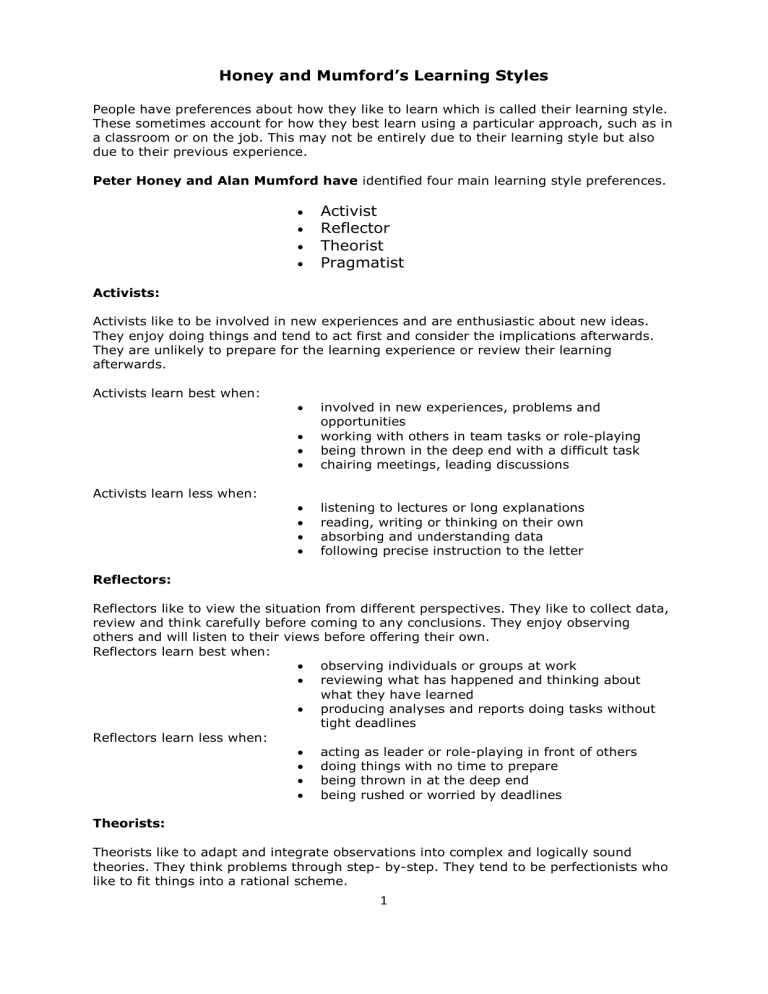
Honey and Mumford’s Learning Styles People have preferences about how they like to learn which is called their learning style. These sometimes account for how they best learn using a particular approach, such as in a classroom or on the job. This may not be entirely due to their learning style but also due to their previous experience. Peter Honey and Alan Mumford have identified four main learning style preferences. Activist Reflector Theorist Pragmatist Activists: Activists like to be involved in new experiences and are enthusiastic about new ideas. They enjoy doing things and tend to act first and consider the implications afterwards. They are unlikely to prepare for the learning experience or review their learning afterwards. Activists learn best when: involved in new experiences, problems and opportunities working with others in team tasks or role-playing being thrown in the deep end with a difficult task chairing meetings, leading discussions listening to lectures or long explanations reading, writing or thinking on their own absorbing and understanding data following precise instruction to the letter Activists learn less when: Reflectors: Reflectors like to view the situation from different perspectives. They like to collect data, review and think carefully before coming to any conclusions. They enjoy observing others and will listen to their views before offering their own. Reflectors learn best when: observing individuals or groups at work reviewing what has happened and thinking about what they have learned producing analyses and reports doing tasks without tight deadlines Reflectors learn less when: acting as leader or role-playing in front of others doing things with no time to prepare being thrown in at the deep end being rushed or worried by deadlines Theorists: Theorists like to adapt and integrate observations into complex and logically sound theories. They think problems through step- by-step. They tend to be perfectionists who like to fit things into a rational scheme. 1 Theorists learn best when: put in complex situations where they have to use their skills and knowledge they are in structured situations with clear purpose they are offered interesting ideas or concepts even though they are not immediately relevant they have the chance to question and probe ideas Theorists learn less when: they have to participate in situations which emphasise emotion and feelings the activity is unstructured or briefing is poor they have to do things without knowing the principles or concepts involved they feel they're out of tune with the other participants, for example people with different learning styles Pragmatists: Pragmatists are eager to try things out. They like concepts that can be applied to their job. They tend to be impatient with lengthy discussions and are practical and down to earth. Pragmatists learn best when: Pragmatists learn less when: there is a link between the topic and job they have the chance to try out techniques they are shown techniques with obvious advantages such as saving time they are shown a model they can copy there is no obvious or immediate benefit that they can recognise there is no practice or guidelines on how to do it there is no apparent benefit to the learning the event or learning is 'all theory' Source: Mumford, A. (1997) How to manage your learning environment. Peter Honey Publications. 2
